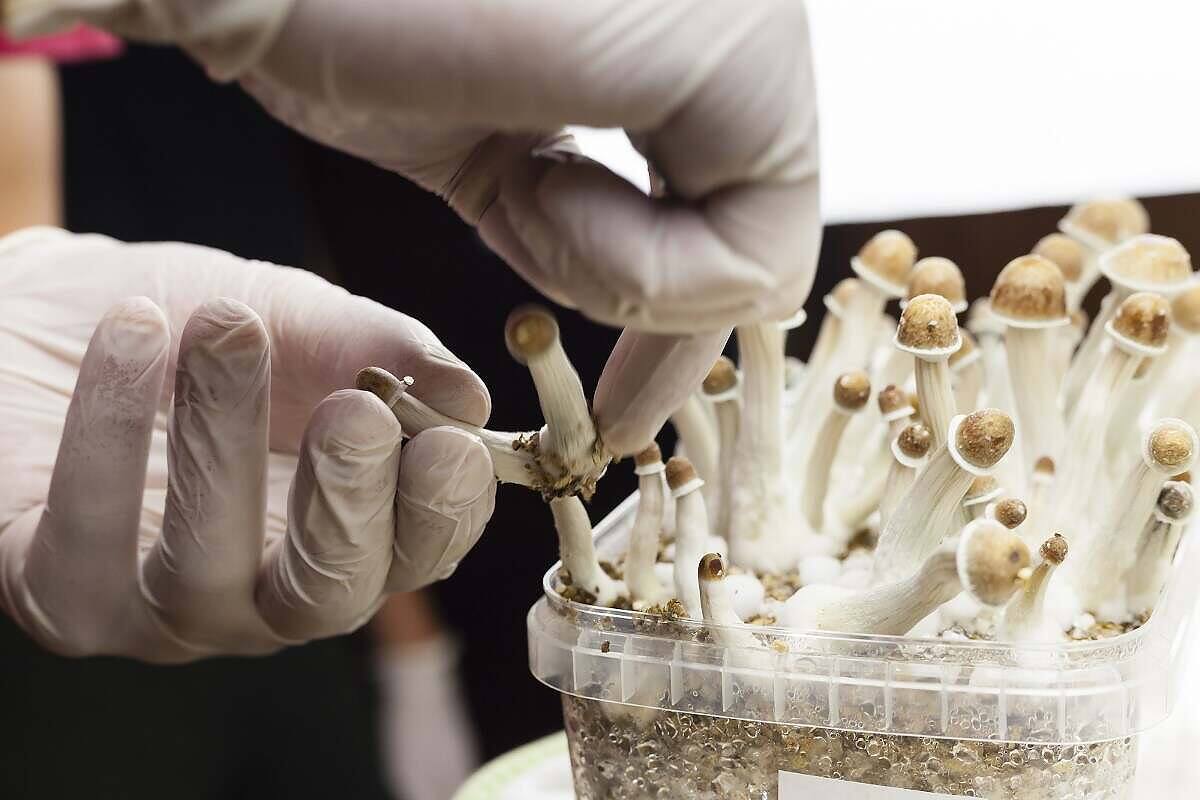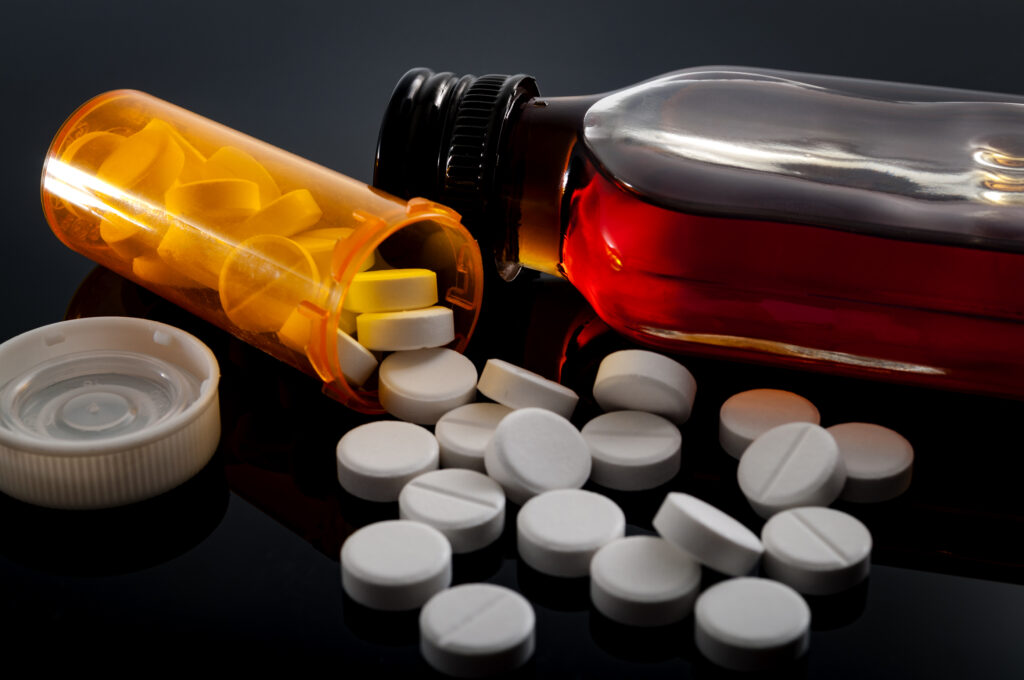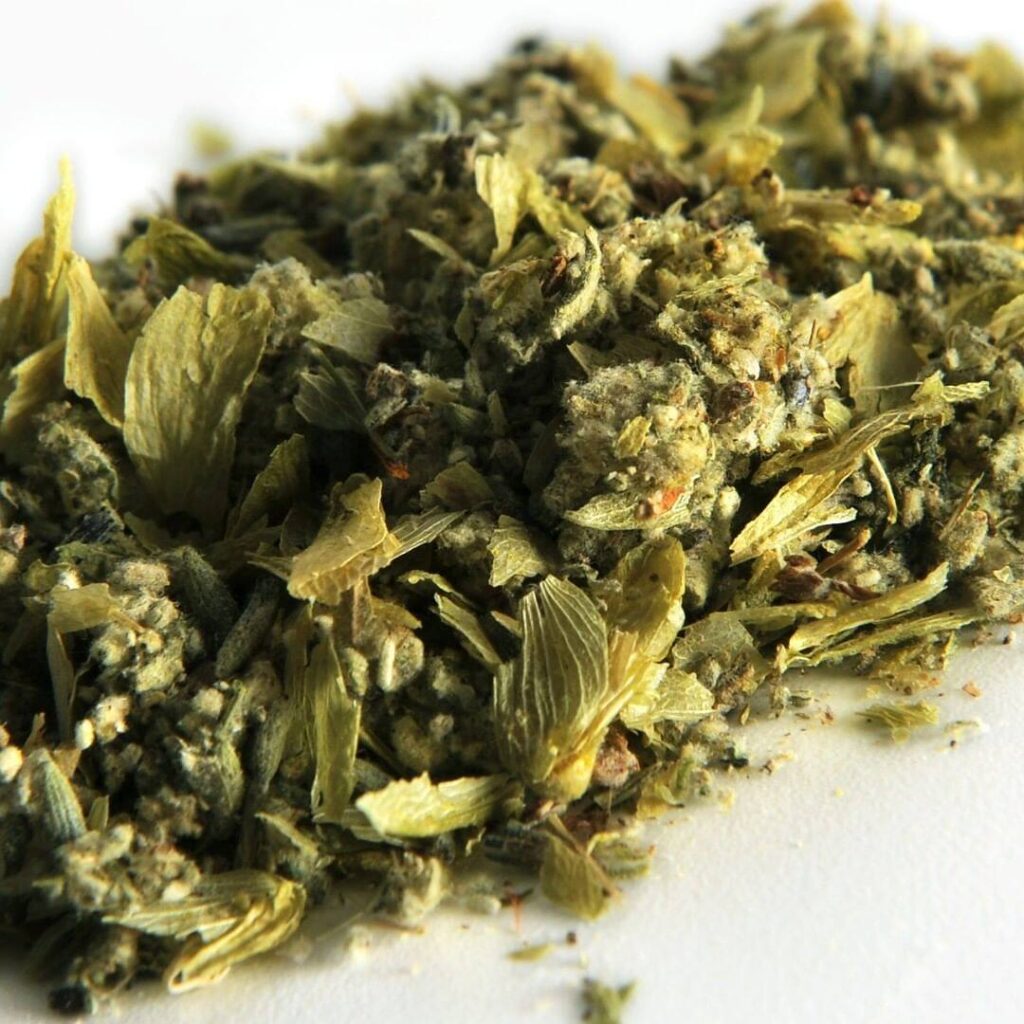Psychedelic drugs have been popular since the 1960s, with their usage hitting a peak in the mid-1970s – aptly dubbed the psychedelic era (1)
The use of psychedelics during the mid-1960s to mid-1970s evolved out of the social consciousness movement, which fostered a commitment to civil rights and protests against the war.
Most people who abuse drugs start out using recreationally. Here, Detox Plus UK looks at the different types of psychedelics available, their effects, risks and dangers so that you can make educated and healthier choices.
What are Psychedelics?
Psychedelic drugs are a type of drug that belongs to the family of hallucinogenics. The primary effect is to trigger an altered state of consciousness and the experience of possible mystical experiences known as a ‘trip’.
A psychedelic ‘trip’ can transport a person into an altered experience of the world around them. This experience can be good or bad. Bad trips can be terrifying, causing long-lasting psychological damage and flashbacks.
List of psychedelic drugs:
Recreational – The most popular psychedelics that trigger psychedelic trips are used recreationally and include Acid, Ecstasy, magic mushrooms, THC potent marijuana and LSD microdots and tabs.
Legal High – Many ‘legal highs’ that are now classed under the Psychoactive Substances Act 2016 also have psychedelic effects. Examples are N-Bomb and synthetic cannabinoids (3)
Ritual – Numerous plant-based hallucinogenics have been used before records began during traditional spiritual ceremonies and native American rituals. Examples include: Ayahuasca, Psilocybin (Magic Mushrooms), Peyote, Ibogaine, Salvia and Mexican morning glory (4)
Animal – Some animals found in the Amazon rain basin carry venom that can induce psychedelic experiences. These experiences are often used as part of rituals carried out by local spirit guides and shamans. Animals that have psychedelic and hallucinogenic properties include different types of poisonous toad, tree frogs and venomous snakes.
Dissociative – Many dissociative drugs also have hallucinogenic effects when taken in large doses, Ketamine and PCP being two such drugs commonly abused.
The law on Hallucinogenic drugs in the UK
Psychedelics in the UK are illegal. However, in many countries where drug plants are cultivated or grow naturally, they are not classified as illicit substances.
Most psychedelics have a high potential for abuse and carry risk factors. This means that drugs such as Ecstasy, Acid, MDMA, N-Bomb, and freshly prepared magic mushrooms are all Class A drugs under The Misuse of Drugs Act 1971 in the UK.
Legal highs with hallucinogenic effects were also made illegal by the UK Government under the Psychoactive Drugs Act 2016 (5)
Psychedelics for curing mental health illnesses and treating addiction

There have been many trials into the effect of psychedelics on the brain’s serotonin receptors and how they can assist in treating incurable mental health conditions and damaged pathways.
Ayahuasca retreats have become popular, as has micro-dosing psychedelics. The main problem that blocks the further research required to categorically state if they can help humans 100 per cent safely is the drug classification of psychedelics. As a class A drug, they have the most restrictions in place. This makes it impossible and unethical for the needed research to be conducted on humans as opposed to animals (6)
The reality is that all drugs come with risks, and a psychedelic experience is a very intense experience. Some people will absolutely not enjoy the effects, whilst others will absolutely love them. It is entirely a personal choice. However, using any drug to excess, man-made synthetic, animal or plant-based will always result in negative consequences and lead to a substance misuse disorder.
How psychedelics work
Psychedelics work on the neural circuits in the brain that use the neurotransmitter serotonin. This is what is thought to cause the sensory perception changes and euphoric feelings that occur whilst intoxicated.
Hallucinogens primarily work on the prefrontal cortex part of the brain, responsible for mood, cognition, and processing sensory information. As well as the prefrontal cortex, they work on other areas of the brain responsible for regulating arousal and response to panic and stress (7)
LSD and lysergic acid diethylamide (Acid) have been shown to target a specific serotonin receptor called 5-HT2A. When this happens, the senses are thrown into chaos. The result of the effect of this particular serotonin receptor appears to produce vivid hallucinations in varying forms. For instance, a person under the influence may be able to ‘smell colours’ or ‘see sounds’. Things a person sees, hears, smells, touches or tastes are so vividly enhanced that the brain is fooled into thinking they are real. ‘Seeing sounds’ or ‘smelling colours’ only happens naturally in a small percentage of people and is a condition known as synesthesia 8)
A mushroom trip normally comes to an end within 6 hours. An LSD trip, on the other hand, can last for a full 10 hours.
The effects on the body and mind
While Psychedelics work mainly on the mind, their effect in causing sensory changes can also cause some physical side effects.
Most physical and psychological effects decrease and eventually stop as soon as they have left the body.
Short term physical effects of psychedelic drugs include:
- Altered sense of touch
- Altered sense of taste
- Altered sense of smell
- Blurred vision
- Clumsiness
- Chills
- Distorted hearing
- Dizziness
- Dry mouth
- Diarrhoea
- Headache
- Increased body temperature
- Increased blood pressure
- Increased heart rate & respiratory rate
- Increased risk of injury or fatality
- Nausea
- Loss of appetite
- Numbness
- Sweating
- Vomiting
Short term psychological effects include:
- Altered perception of time
- Anxiety
- Confusion
- Impulsiveness
- Increased risk of suicide
- Difficulty concentrating
- Hallucinations (seeing and hearing things that are not there)
- Feelings of euphoria
- Feelings of warmth and wellbeing
- Feelings of terror
- Reduced inhibitions
- Insomnia
- Mood swings
- Mixed senses (“seeing” sounds or “hearing” colours)
- Panic
- Paranoia
- Psychosis
- Spiritual experience (9,10)
Having a ‘good trip’ & coping with a ‘bad trip.’
If you are considering trying psychedelics for the first time, you will be anxious to know whether the experience will be good or bad. Unfortunately, there really is no telling. It is down to the quality and quantity of the drug you take and how you as an individual personally react to it.
Two different people taking the same drug in the same environment can have completely different experiences.
An Acid trip can last anything from 8 up to 12 hours, sometimes longer (11). However, due to the distorted time perception that they induce, this time frame can seem much shorter or much longer.
To an extent, sometimes, a person’s mood and mental health when they take psychoactive drugs can influence the experience they have. However, this is not always the case.
The result of a bad trip on acid, magic mushrooms can be terrifying and overwhelming. You will want the experience to end. Whilst you cannot control how long an acid trip lasts, there are some tips on coping if you do experience a bad trip.

Tips on coping with a bad trip
– Ask for help
Call a friend or someone you trust who is not intoxicated and explain to them what is happening. They can help to reassure you and remind you that the experience you are having is not real. They can also ensure that you stay safe and don’t take any risks.
– Keep stimulation to a minimum
Turning off the TV, loud music or noise that is being distorted by the drug can help reduce some of the impacts. Try to stay indoors and away from outside stimulation. Try and rest and listen to quiet, familiar and soothing music (12)
– Stay well hydrated
Ensure that you keep your body hydrated and avoid alcohol and caffeine. In addition, try to ensure that you eat small meals to keep blood sugar levels stable.
– Do not self-medicate
Don’t try to end the experience by self-medicating with another drug or medication. This could cause an adverse reaction and make things much, much worse.
Alcohol mixed with LSD can increase anxiety levels, dehydrate you and make the comedown period more uncomfortable and prolonged.
Remind yourself it is NOT real.
Whilst the hallucinations can appear VERY real, try to remind yourself that it is just the drug and that, eventually, the influence will wear off.
– Stay safe
If you are outdoors whilst experiencing a bad trip, try and find a safe space away from traffic and noise. You may have unusual impulses whilst under the influence. Try not to act on these as you could suffer an injury or accident. This is why it is so important to have someone with you who is not under the influence; tell them what you want to do so they can gauge if it is dangerous or necessary (13)
When to seek medical help for a bad trip
If you feel unwell, suspect the drug you took has been contaminated, have self-medicated or feel like you’re losing your mind, or your life is in danger, it is time to seek medical help and call the emergency services.
Ensure that you tell the medics everything you have taken, including if you have consumed alcohol, and take any regular medications with you.
|
According to a research report produced by the NIDA, a bad trip can result in fear of losing control, insanity or death (13) |
The Acid Experience – Effects of a ‘good trip’ vs a ‘bad trip.’

The effects of a good psychedelic trip are the polar opposite of the effects of a bad psychedelic trip.
A good trip:
- Feeling more connected with the world and people around you
- The world is more beautiful, magical and vibrant
- Intense feelings of euphoria and love
- Life feels magical and wonderful
- Feeling like you are walking on air or floating
- Feelings of creativity, healing and inspiration
A bad trip:
- The world and people can appear sinister, dark and evil
- Intense feelings of fear and terror
- The feeling of impending doom
- Life seems cold, harsh and unforgiving
- A disturbing perception of time, as if everything is in slow motion
- Feeling trapped and confused
- Desperately wanting the experience to end
- Intense feelings of paranoia
The long term risks associated with psychedelics
Whilst most people who experience a bad trip on a psychoactive drug will feel normal once the drug’ wears off, some people aren’t so lucky and suffer lasting consequences.
Serious long term effects of using psychedelics and hallucinogens include persistent psychosis and flashbacks, both of which usually present together in a condition known as hallucinogen persisting perception disorder (HPPD) (15)
Suffering from HPPD can be debilitating and life-changing. Although long term side impacts are rare, they are still very much a risk to consider.
Long terms effects include:
- Impaired cognitive ability
- Mood swings
- Disrupted concentration
- Persistent psychosis
- Paranoia
- Flashbacks
- Hallucinations
- Irrational thinking
- Disordered thinking
- Anxiety
- Visual disturbances (14)
Psychedelic drug addiction & treatment
As with all mind and mood-altering drugs, there is a risk of addiction. People who take psychedelics frequently will find that they become tolerant. But, unfortunately, this can cause them to take more and become addicted to living in an altered state of consciousness.
Whilst they are not proven to cause dependence, addiction is characterised by loss of control, craving and continuation despite adverse consequences.
The more a person takes, the higher the risk of suffering long term adverse outcomes to the brain.
Drug addiction cannot be cured, but it can be prevented and treated.
Professional treatment for drug addiction is available to access privately through Detox Plus UK. We can ensure that you or your loved one undergo the best evidence-based addiction treatment available and ensure that your treatment programme is completely tailored to your personal treatment needs.
Call our addiction treatment experts here at Detox Plus UK today for more information on drug treatment and a free and confidential professional treatment assessment.
References:
- Psychedelic era “The Psychedelic Review Archives 1963-1971”
- New Psychoactive Substances
- https://en.wikipedia.org/wiki/List_of_substances_used_in_rituals
- What are the UK drug laws? https://www.drugwise.org.uk/what-are-the-uk-drug-laws/ https://www.rehabguide.co.uk/ayahuasca/
- Safety of Psychedelics
- Passie, 2008; Nichols, 2004; Schindler, 2012; Lee, 2012
- NIDA – impacts of drugs on neurotransmission
- NIDA hallucinogens- Drug Facts
- The effects of hallucinogens
- Modern clinical research on LSD
- Dreams and Psychedelics: Neurophenomenological Comparison and Therapeutic Implications
- Human hallucinogen research – Guidelines for safety
- Research report- hallucinogens and disassociative drugs
- Hermle L, Simon M, Ruchsow M, Geppert M. Hallucinogen-persisting perception disorder.


